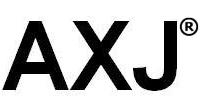AAF : THE REAL ISSUE BEHIND FORECLOSURES!
Page 1 of 1
 AAF : THE REAL ISSUE BEHIND FORECLOSURES!
AAF : THE REAL ISSUE BEHIND FORECLOSURES!
AAF : THE REAL ISSUE BEHIND FORECLOSURES!

We agree that Judges with personal investments in Residential Mortgage Backed Securities ( RMBS ) or the Banks, parties to the action must recuse themselves, but what is the real issue at hand? Perhaps the violation of Seventh Amendment rights?
Perhaps the violation of Federal or State Commercial Codes, for example the 2022 California Code, Commercial Code - COM DIVISION 3 - NEGOTIABLE INSTRUMENTS, CHAPTER 3 - Enforcement of Instruments, Section 3302, Universal Citation: CA Com Code § 3302 (2022) 3302, whereby:
(a) Subject to subdivision (c) and subdivision (d) of Section 3106, “holder in due course” means the holder of an instrument if both of the following apply:
(1) The instrument when issued or negotiated to the holder does not bear such apparent evidence of forgery or alteration or is not otherwise so irregular or incomplete as to call into question its authenticity.
(2) The holder took the instrument (A) for value, (B) in good faith, (C) without notice that the instrument is overdue or has been dishonored or that there is an uncured default with respect to payment of another instrument issued as part of the same series, (D) without notice that the instrument contains an unauthorized signature or has been altered, (E) without notice of any claim to the instrument described in Section 3306, and (F) without notice that any party has a defense or claim in recoupment described in subdivision (a) of Section 3305.
(b) Notice of discharge of a party, other than discharge in an insolvency proceeding, is not notice of a defense under subdivision (a), but discharge is effective against a person who became a holder in due course with notice of the discharge. Public filing or recording of a document does not of itself constitute notice of a defense, claim in recoupment, or claim to the instrument.
(c) Except to the extent a transferor or predecessor in interest has rights as a holder in due course, a person does not acquire rights of a holder in due course of an instrument taken (1) by legal process or by purchase in an execution, bankruptcy, or creditor’s sale or similar proceeding, (2) by purchase as part of a bulk transaction not in ordinary course of business of the transferor, or (3) as the successor in interest to an estate or other organization.
(d) If, under paragraph (1) of subdivision (a) of Section 3303, the promise of performance that is the consideration for an instrument has been partially performed, the holder may assert rights as a holder in due course of the instrument only to the fraction of the amount payable under the instrument equal to the value of the partial performance divided by the value of the promised performance.
(e) If (1) the person entitled to enforce an instrument has only a security interest in the instrument and (2) the person obliged to pay the instrument has a defense, claim in recoupment, or claim to the instrument that may be asserted against the person who granted the security interest, the person entitled to enforce the instrument may assert rights as a holder in due course only to an amount payable under the instrument which, at the time of enforcement of the instrument, does not exceed the amount of the unpaid obligation secured.
(f) To be effective, notice shall be received at a time and in a manner that gives a reasonable opportunity to act on it.
(g) This section is subject to any law limiting status as a holder in due course in particular classes of transactions.
Source: www.axj.nu

We agree that Judges with personal investments in Residential Mortgage Backed Securities ( RMBS ) or the Banks, parties to the action must recuse themselves, but what is the real issue at hand? Perhaps the violation of Seventh Amendment rights?
Perhaps the violation of Federal or State Commercial Codes, for example the 2022 California Code, Commercial Code - COM DIVISION 3 - NEGOTIABLE INSTRUMENTS, CHAPTER 3 - Enforcement of Instruments, Section 3302, Universal Citation: CA Com Code § 3302 (2022) 3302, whereby:
(a) Subject to subdivision (c) and subdivision (d) of Section 3106, “holder in due course” means the holder of an instrument if both of the following apply:
(1) The instrument when issued or negotiated to the holder does not bear such apparent evidence of forgery or alteration or is not otherwise so irregular or incomplete as to call into question its authenticity.
(2) The holder took the instrument (A) for value, (B) in good faith, (C) without notice that the instrument is overdue or has been dishonored or that there is an uncured default with respect to payment of another instrument issued as part of the same series, (D) without notice that the instrument contains an unauthorized signature or has been altered, (E) without notice of any claim to the instrument described in Section 3306, and (F) without notice that any party has a defense or claim in recoupment described in subdivision (a) of Section 3305.
(b) Notice of discharge of a party, other than discharge in an insolvency proceeding, is not notice of a defense under subdivision (a), but discharge is effective against a person who became a holder in due course with notice of the discharge. Public filing or recording of a document does not of itself constitute notice of a defense, claim in recoupment, or claim to the instrument.
(c) Except to the extent a transferor or predecessor in interest has rights as a holder in due course, a person does not acquire rights of a holder in due course of an instrument taken (1) by legal process or by purchase in an execution, bankruptcy, or creditor’s sale or similar proceeding, (2) by purchase as part of a bulk transaction not in ordinary course of business of the transferor, or (3) as the successor in interest to an estate or other organization.
(d) If, under paragraph (1) of subdivision (a) of Section 3303, the promise of performance that is the consideration for an instrument has been partially performed, the holder may assert rights as a holder in due course of the instrument only to the fraction of the amount payable under the instrument equal to the value of the partial performance divided by the value of the promised performance.
(e) If (1) the person entitled to enforce an instrument has only a security interest in the instrument and (2) the person obliged to pay the instrument has a defense, claim in recoupment, or claim to the instrument that may be asserted against the person who granted the security interest, the person entitled to enforce the instrument may assert rights as a holder in due course only to an amount payable under the instrument which, at the time of enforcement of the instrument, does not exceed the amount of the unpaid obligation secured.
(f) To be effective, notice shall be received at a time and in a manner that gives a reasonable opportunity to act on it.
(g) This section is subject to any law limiting status as a holder in due course in particular classes of transactions.
Source: www.axj.nu
Page 1 of 1
Permissions in this forum:
You cannot reply to topics in this forum|
|
|
